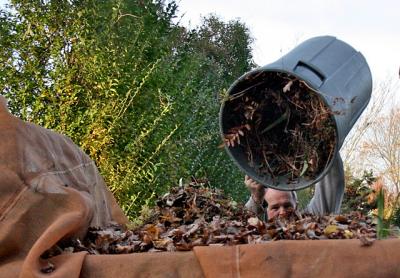Nature Notes: A Long Way to Go

Here we are starting a new year and who knows where it will take us? I’ve been an optimist all of my life and I don’t know why. Was it because I was born at home and attended to by Dr. Luce of Riverhead who made more house calls than he had office visits? These last few years, however, I am beginning to see the world through blurred lenses. Sure, we have made a lot of progress locally, we’ve saved a lot of woods, fields, wetlands, sand dunes, ponds, and creeks, but we have a long, long way to go.
When I started writing this column in the early 1980s, East Hampton and Southampton Towns didn’t have laws protecting wetlands. Woodlands were being cut down and turned into housing projects. The local fishermen, who had for centuries provided fresh fish for thousands of customers by working together haulseining, were losing their longstanding rights at a rapid pace.
We’ve come a long way since that time with respect to saving our natural lands and our farmlands, but it took a lot of effort to achieve these milestones. The Peconic Land Trust under John v.H. Halsey’s leadership, which for more than 40 years has already made untold gains in saving our historical farming way of life, continues to work with the East End’s farmers to farm more and build less, while the fishermen are still faced with several impasses and their fate is far from rosy.
We are facing rising sea levels and an increase in the frequency of tropical cyclones and northeasters. Our traffic congestion problems grow worse each year. Our sole source aquifer continues to degrade as our water quality laboratories continue to expand testing and gifted volunteer groups continue to test the local surface waters, but still we often find out much too late that we have been drinking and washing in well water laced with this and that chemical for several years. The nitrogen and other contaminants from septic systems have been increasing and slowly dumping into the local estuarine waters, sullying them more and more.
The air we breathe is clogged with chemicals from exhaust, furnaces, vehicles, and other energy use sources. We have even learned lately that our ozone levels, because of the heavy volume of exhaust from traffic on Long Island roads, are among the highest in the nation. And there seems to be a phenomenon called global warming afoot that some say will change our way of living forevermore.
Here are some practices that are already in use that can be expanded to improve the outcomes for our air and water:
1) Let green grass lawns turn into moss lawns, which don’t require water or fertilizers to grow and stay green and weed-free all year around. Such transformations will happen on their own if we let them.
2) Rake, don’t machine blow, leaves to manage them. Compost the leaves or let them lie to compost on their own.
3) Walk more, bike more, take fewer auto trips, and use public transportation when and where available.
4) Don’t flush medicines and other personal-use chemicals down the sink or toilet.
5) Use energy saving non-incandescent lights and stop lighting up the world around you with lights that send their rays beyond your property limits. Turn lights off when not in use!
6) Solarize your roofs to lower your use of burning-fuel-source electricity.
7) Eat as much raw food as cooked food.
8) Go to bed earlier; get up earlier.
9) Don’t shower every day.
10) Carpool when possible.
And most of all, enjoy nature!
Larry Penny can be reached via email at [email protected].
